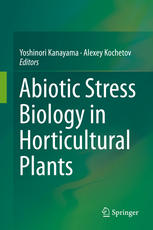

Most ebook files are in PDF format, so you can easily read them using various software such as Foxit Reader or directly on the Google Chrome browser.
Some ebook files are released by publishers in other formats such as .awz, .mobi, .epub, .fb2, etc. You may need to install specific software to read these formats on mobile/PC, such as Calibre.
Please read the tutorial at this link: https://ebookbell.com/faq
We offer FREE conversion to the popular formats you request; however, this may take some time. Therefore, right after payment, please email us, and we will try to provide the service as quickly as possible.
For some exceptional file formats or broken links (if any), please refrain from opening any disputes. Instead, email us first, and we will try to assist within a maximum of 6 hours.
EbookBell Team

4.1
20 reviewsThe purpose of this publication is to elucidate the biological aspect of the abiotic stress response from the field to the molecular level in horticultural plants. This book is unique in that it concerns the basic aspect of abiotic stress biology and research progress at the molecular level in model plants or major field crops, as it focuses mainly on the abiotic stress response in existing horticultural plants. Many readers interested in plant abiotic stress biology are aware of the application of the latest findings to agricultural production, and this book will have a special appeal for those readers. The book will be of interest to scientists and graduate students who are involved in the research, development, production, processing, and marketing of horticultural products, including those in developing countries who are interested in high tech and advanced science in this field. The application of the latest findings to agricultural production is particularly useful.
Stress tolerance mechanisms in horticultural crops are gaining importance, because most agricultural regions are predicted to experience considerably more extreme environmental fluctuations due to global climate change. Further, because of recent progress in next-generation sequencing technologies, the postgenomic era is impending not only in model plants and major cereal crops but also in horticultural crops, which comprise a great diversity of species. This book provides information on the physiological aspects of the abiotic stress response in horticultural plants, which is considered essential for postgenomic research.